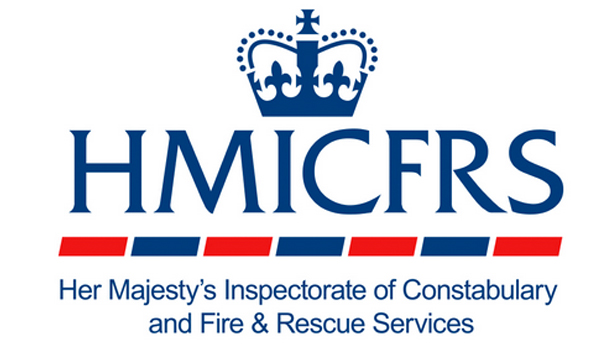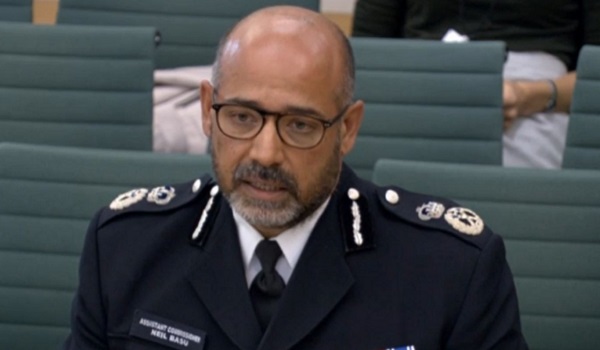New report highlights ‘many positive aspects’ to policing’s delivery of Prevent duty
A new report from Her Majesty’s Inspectorate of Constabulary and Fire and Rescue Services (HMICFRS) has praised the work of police in protecting vulnerable people against radicalisation.
Counter-terrorism policing Part 4: An inspection of the police’s contribution to the Government’s Prevent programme, published today (March 9), says forces are “meeting their obligations under the Prevent duty”, with inspectors seeing “many positive aspects” in the way they protect young people and vulnerable adults from extremist material and radicalisers.
The report also praised the innovation shown by the way police use hate crime data and computer systems to better protect communities against extremists, as well as recognising that “policies and effective processes designed to protect people from being radicalised were in place”.
However, it does suggest that improvements can be made to sharing best practice and innovation across all force areas, as well as spotting “inconsistencies in how forms, processes and standards of referrals were used” – calling for greater scrutiny from Prevent leads.
HMICFRS said it found “an unstructured approach to disseminating lessons learnt for Prevent”.
It added: “We also saw a marked discrepancy between forces’ counter-terrorism local profile (CTLP) documents on governance, purpose, method of creation, structure and dissemination.
“There was a range of approaches to Prevent communication strategies. But we believe it is appropriate that the circumstances of each incident should dictate how the communication strategy is implemented.”
And while there were some good examples of learning from incidents and the experience of others being passed on through formal processes or at peer-to-peer events, HMICFRS said in general, lessons learnt were “not effectively identified, shared or incorporated into action plans”.
In particular, HMICFRS highlighted forces’ response to the Parsons Green attack review commissioned by the Gold Group for Operation Air – a ‘multi agency learning review of the Prevent response to the subject responsible for the Parsons Green bombing’.
“We were told some forces had reviewed the Operation Air recommendations with other local organisations and some had made changes to their approach. But too many interviewees didn’t know about Operation Air despite efforts to publicise this material,” said HMICFRS.
“There needs to be a more structured approach to passing on lessons learnt from Prevent and to making sure action is taken. This resonates with a recommendation in our third inspection of counter-terrorism (CT) policing – Counter-terrorism policing: Part 3: A joint inspection of the effectiveness of the CT network in providing the ‘bridge’ between the national and local levels of policing in England, Wales and Scotland to reduce the risk from terrorism (HMICFRS and HMICS, 2018) – and is, we believe, a role for the CT network.”
The report makes eight recommendations, ranging from improved training packages for Prevent strategic leads, to improving police resilience to radicalisation of its own officers and staff.
The National Police Chiefs’ Council (NPCC) lead for Prevent, Chief Constable Simon Cole, said: “At a time when the threat to the UK from terrorism remains at record levels, with rising numbers of investigations and an extremism crisis fuelled by a largely lawless online space, I am proud policing is helping to lead the vital fight against radicalisation.
“Prevent is the only strategy that will succeed in reducing the terrorism threat in the long-term – and we must do more to champion its work and improve trust in our communities.
“As this report highlights, the police service can and will make improvements to the way we carry out our Prevent duties, and as the NPCC lead I will ensure every single one of the recommendations made by the HMICFRS will be met.
“But this report also recognises the outstanding work done by police forces and their Prevent officers in protecting the most vulnerable in our society, and highlights the passion, innovation and best practice that we will strive to share across the UK so that we are all better protected from those who wish to do us harm.”
HM Inspector of Constabulary Matt Parr said: “In this inspection, we sought to answer the question: ‘How effective is the police contribution to Prevent?’ What we found was a largely encouraging picture. Although there is some inconsistency in the way forces operate, there were examples of innovative and effective working.
“We are pleased that, since our inspection, the College of Policing now includes a module on vulnerability to radicalisation in its national safeguarding training programme. This will help improve consistency between forces in how they train their officers and staff in these important areas.
“We have made eight recommendations that we feel, given the positive work we have seen, the service is on a solid foundation to achieve.”
The recommendations are:
• By June 2020, the NPCC national Prevent lead and the College of Policing should develop a training and awareness package that encompasses continuous professional development for Prevent strategic leads in forces;
• By June 2020, the College of Policing and the NPCC national lead for public protection and safeguarding should add vulnerability to radicalisation as the 14th core discipline of public protection;
• With immediate effect, the NPCC national Prevent lead should make sure that all fixed intelligence management units have sufficient access to the Prevent case management tracker;
• With immediate effect, the NPCC national Prevent lead should create national guidance for the police service on applying Prevent to staff vulnerable to radicalisation or extremism, to identify a range of options, such as selection processes, welfare and vetting, including guidance on risk thresholds;
• By June 2020, the NPCC national Prevent lead should review the national business assurance process to assure compliance with NCTPHQ (National Counter Terrorism Policing Headquarters) policy;
• By June 2020, the NPCC national Prevent lead and Office for Security and Counter-terrorism (OSCT) should develop performance measures that will help police forces assess their operational contributions to Prevent;
• With immediate effect, the NPCC national Prevent lead and each force Prevent lead should review the attendance of force representatives at Channel panels so that police are correctly represented by decision-makers who can contribution to managing risk; and
• By June 2020, the NPCC national Prevent lead and OSCT should undertake a national review of CTLPs, to include its governance, purpose, method of creation, structure and dissemination, and produce revised CTLP guidance.







